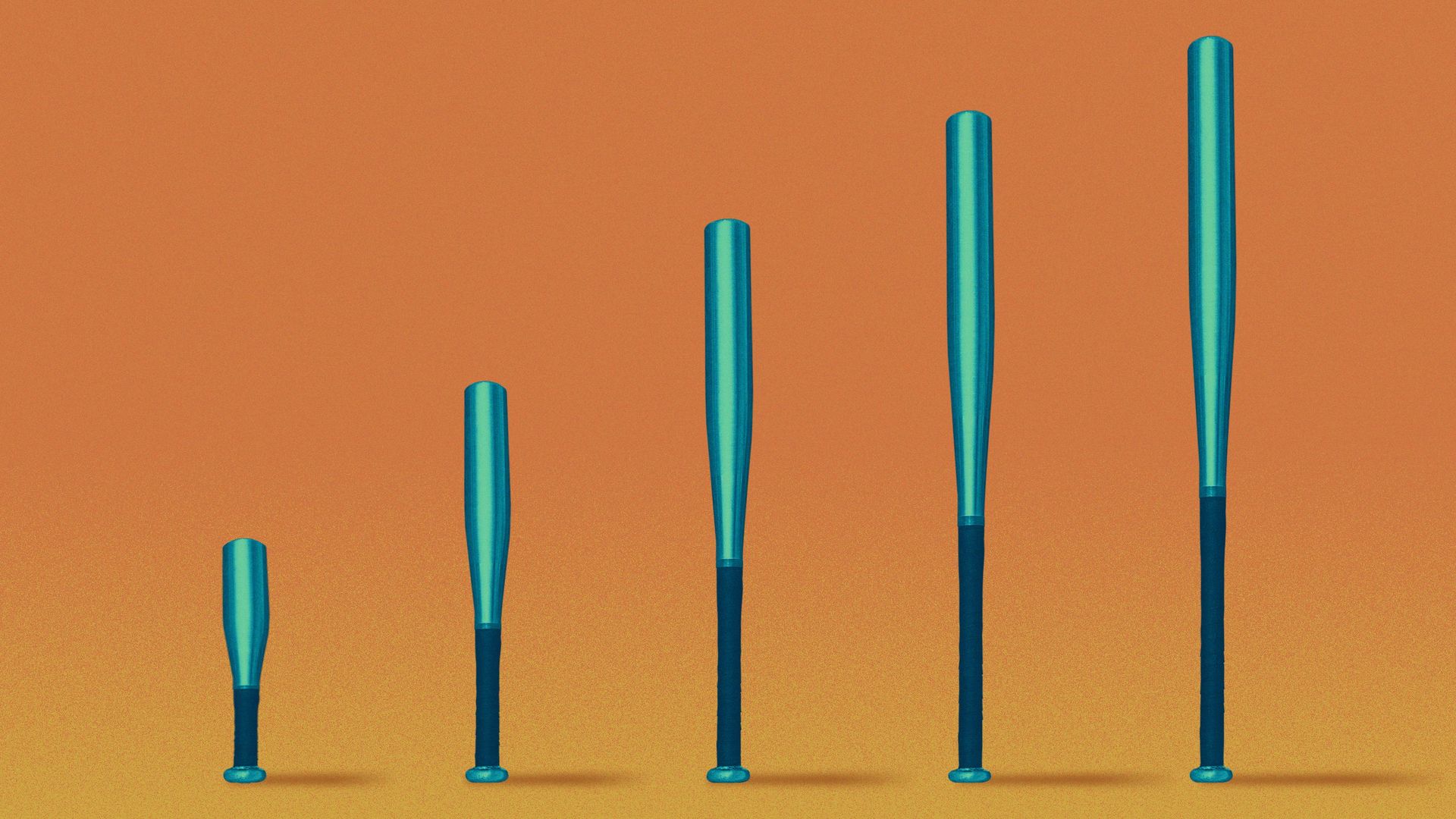The growing pro softball landscape
Add Axios as your preferred source to
see more of our stories on Google.

Illustration: Allie Carl/Axios
On the heels of the Women's College World Series, two pro softball leagues began play last week.
Why it matters: The existence of multiple leagues is indicative of softball's recent growth, spurred by increasing popularity of the college game and the uptick in investment across women's sports.
- AUX is a condensed version of the fantasy-style Athletes Unlimited league that launched in 2020. The standard five-week edition begins its third season in July.
- Women's Professional Fastpitch (WPF) replaces National Pro Fastpitch (NPF), which shuttered last year after two decades due to COVID-induced financial losses.
State of play: Jocelyn Alo, the Oklahoma superstar coming off her second straight WCWS title, was drafted No. 1 overall by both leagues.
- She chose WPF and debuted on Friday. The league's commissioner, Lauren Chamberlain, is a fellow Sooner whose NCAA career HR record Alo broke in March.
- WPF has just two teams for its inaugural, exhibition-style season. Athletes Unlimited has added AUX in year three and inked a two-year broadcast deal with ESPN.
The big picture: Softball is the latest women's sport to see such progress. The WNBA recently raised a record $75 million, the NWSL inked its first CBA and USWNT finally achieved equal pay.
Yes, but: Given the popularity of college softball (the WCWS outdrew the men’s last year), it's surprising that the professional game has yet to truly take off.
- Consider that most of Alo's senior teammates' and opponents' careers are now over due to a lack of viable professional options, and it's been that way for decades. One key reason? No external financial support.
- The WNBA survived early on thanks to subsidies from the NBA, which still partially owns the league, and the NWSL received similar support from U.S. Soccer. NPF got nothing.
- Now, the WNBA and NWSL are thriving, and these nascent softball leagues hope to join them.
What they're saying: "More opportunities for pro softball players is a great thing overall," Athletes Unlimited CEO Jon Patricof tells Axios.
- "I continue to be a believer that you need to treat women's sports like sports, not like a niche platform, and that’s where we are."
- To wit, the addition of AUX means more compensation for athletes, and "the deal with ESPN ensures tremendous coverage and visibility," adds Patricof.
